Stars Are Not Small Or Gentle. They Are Writhing And Dying And Burning. They Are Not Here To Be Pretty.
Stars are not small or gentle. They are writhing and dying and burning. They are not here to be pretty. I am trying to learn from them.
Caitlyn Siehl, “Sky Poem” (via chocolatefrogs)
More Posts from Thatfabulouscrazyperson and Others
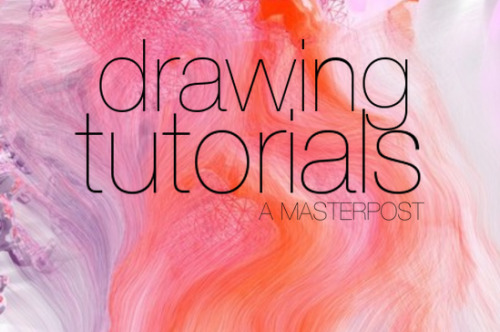
FACES
Drawing a face (the circle thing)
How to draw faces
Heads in profile
Drawing heads
A face tutorial
Avoid same facing
Diversify your faces
Face shapes
To make your drawing look like the person you’re drawing
Make your faces look like the person
Expressions
More about expressions
Drawing lips
Lip tutorial
Drawing ears
Drawing eyes
Realistic eyes
Drawing a nose
Drawing kisses
Drawing glasses
Drawing hoods
BODIES
Guide to human types part 1
Guide to human types part 2
Guide to human types part 3
Different kinds of athletic body types
Ladies tutorial (nudity)
Fellas tutorial
Curves on girls tutorial
How to draw necks
Drawing shoulders
Drawing arms
Drawing hands
Hand tips
More hands
Hands tips and techniques
Hands, arms, legs and feet
Legs, torso and expressions
Drawing boobs
How to boob
Boobs and hips
Drawing abs
Beer belly tutorial
Drawing backs
How to draw back views
Legs reference
Drawing knees
How to draw butts
Penis tutorial (nsfw)
Drawing feet and shoes
Sitting reference
Realistic woman body shape chart
Hair
Drawing hair
Hair tutorial
Drawing curls
Drawing braids
ANIMALS & CREATURES
Canines vs felines
Drawing cats
Drawing cats tips
How to draw big cats
Drawing rats
Basic deer tutorial
Deer sketching
Dog anatomy
Dog anatomy tutorial
Dog nose tutorial
Dog paw tutorial
Basic wolf tutorial
Horse tutorial
Sheep vs goats
Drawing giraffes
Basic owl tutorial
Bird wing tutorial
Drawing bird beaks and faces
Butterfly tutorial
Drawing animal legs on humans
Winged people anatomy
Dragon tutorial
Drawing dragons
Dragon wing tutorial
Fur tutorial
Drawing sharp teeth
OTHERS
Drawing clothes
Clothing folds tutorial
Collars, vests and pants reference
Hats reference
Drawing jeans
Drawing bows
Drawing trees
Tree tutorial
Drawing water
Water tutorial
Drawing crystals
Ice
Clouds
Creating form
Perspective tricks
Character design reference
How to draw better (video)
Learn how to draw better
Art reference & tutorials blog
Tutorial masterpost
How to draw anything
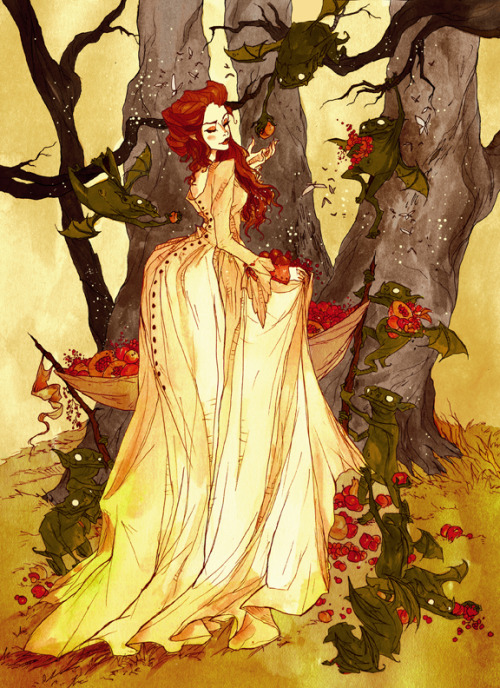
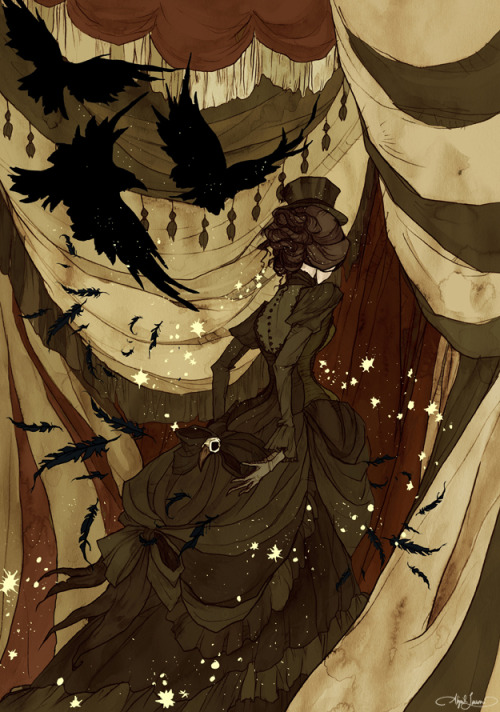
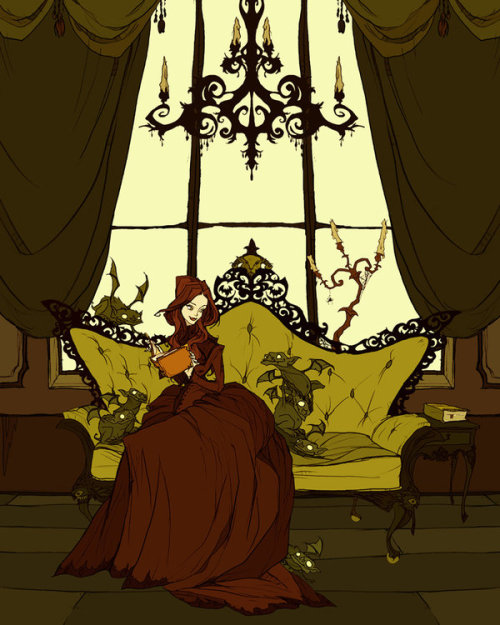
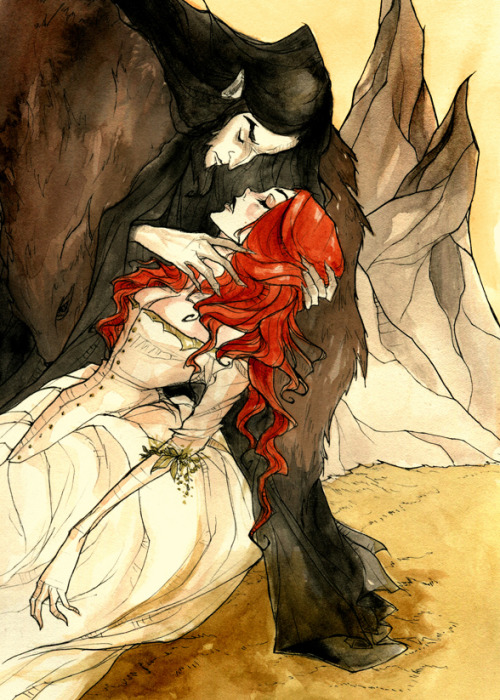

awesome famous artist :
AbigailLarson
Descriptive words for characters: personality traits (pt 1)
for studying, creative writing, book reviews, essays, fanfiction & other things
Nervous / scared easily
startled
afraid
spooked
tense
high-strung
on edge
fidgety
overwrought
Happy
bashful
in high spirits
elated
contented
joyful
overjoyed
jubilant
gleeful
grumpy/sad
sullen
down
peeved/peevish
cantankerous
querulous
dissatisfied
irritable
cold/doesn’t care
impassive
(wilfully)ignorant
coldblooded
unfeeling
apathetic
unsymphatetic
cold-hearted
blah
flat
unmoved
deadened
angry/reactive/mean
dramatic
enraged
heated
offended
inflamed
provoked
irrated
livid
scornful
splenetic
cranky
belligerent
acerbic
confident/brave
collected
unwavering
certain
composed
steady
has a lot of fantasy/lighthearted/playful
whimsical
light
blithe
eccentric
quirky
joyful
sympathetic
sudden changes/moodswings
impulsive
any way the wind blows
capricious
vagarious
unstable
volatile
changeable
sneaky/evil/secretive
cunning
clandestine
two-timing
insidious
fraudulent
deceptive
shady
surreptitious
wily
devious
you can trust this person/honest
reliable
loyal
respectable
solid
safe
responsible
true-hearted
different from most common/different from norm/strange(some positve, some negative,some neutral)
divergent
non conforming
atypical
heteroclite
peculiar
odd
bizarre
weird
anomalous
ludicrous
cooky
absurd
daft
bananas
Intimacy is the capacity to be rather weird with someone - and finding that that’s ok with them.
Alain de Botton (via thelovejournals)

A Basic Glossary of Herbalism Techniques

Image credit: Sage and Smudge
OK, so one thing that often comes up in Q&A sessions about witchcraft is herbalism. It’s extremely complicated in some parts, and this isn’t helped by the fact that there’s often a lot of new and complicated terminology that can really obfuscate the techniques used to people who aren’t used to it.
This post is therefore meant to clarify a few things about terminology to help people decipher what the hell is going on. It does not go into the effects of herbs (like what the difference is between a sedative and a hypnotic), that’s for a later post. This one talks about actual techniques used to MAKE a herbal preparation.
NB: The terminology I use is the most common terminology and definitions used in Western tradition herbalism. Some terms have different definitions in biochemistry or in other herbalism traditions to the ones they have in Western tradition herbalism (WTH). If a term is likely to cause confusion, I’ll try to put an asterisk (*) beside it.
—
Acetum* – A tincture that uses vinegar as its menstruum. The plural is aceta.
Active ingredient – The medicinally active component chemical(s) of a plant; these are what you’re trying to extract.
Aqueous* – An extract that is prepared with water is called an “aqueous extract”, or simply an “extract” (though this is correct, it is vague and therefore should always be clarified as an aqueous extract).
Aromatic* – A chemical that has an easily-discernible fragrance or smell, e.g. menthol from peppermint
Ayurveda – Literally “science of life”, this is a form of Indian herbalism. Included because people often ask what it is and I’m sick of answering.
Cold infusion – A form of herbal preparation in which a herb is steeped in room temperature water overnight as a means of extracting active ingredients.
Constituent – Any component chemical of a plant, regardless of activity.
Decoction – A herbal preparation in which plant matter is simmered in water without boiling until half the liquid has been evaporated.
Double decoction – A form of decoction where the water is evaporated down to a quarter of its original volume, rather than a half.
Elixir* – Any liquid preparation that contains both alcohol-extracted and aqueous-extracted components.
Ethanol – An alcohol with the chemical formula C2H4OH, also known as drinking alcohol and ethyl alcohol.
Extract* – Any liquid preparation in which plant matter is left in a liquid solvent for several weeks. The word “extract” can also refer specifically to aqueous extracts.
Filtrate – The liquid retrieved from a physical filtering separation process.
Fluid Ounce – Also known as an ounce by volume, this is a measurement of fluid equal to 1/16th of a pint by volume, or approximately 0.03L metric. Weight-to-Volume ratios measure volume in fluid ounces most commonly. Symbolised as fl. Oz.
Folkloric extract – A herbal extract prepared without measuring weights or volumes of the marc or menstruum. Much more variable in dosage than measured extracts, and therefore more risky.
Glycerine – Also known as glycerine and glycerol. A chemical with the formula C3H5(OH)3, often used in the preparation of sweet-tasting extracts.
Glycerite – Any extract prepared using glycerine as the solvent. Glycerites should be a minimum of 55% glycerine by volume in order to preserve their contents against bacteria.
Hot infusion – A herbal preparation made by steeping plant matter in boiling or boiled water for at least 10 minutes. Less than 10 minutes forms a tea instead.
Inactive ingredient – Any molecule in a plant that does not have medicinal or biological value. A plant will always have more than one inactive ingredient, but a herbal preparation could theoretically have only one (although it never will).
Liniment – An extract, most usually a tincture, which is used topically on the skin rather than taken orally. Also known as an embrocation.
Lipid – Any fat. Often used as a solvent when dealing with fat-soluble compounds, for example cannabinoids.
Lozenge – A herbal preparation in which the active ingredient is made into a thick syrup, heated until candying occurs, and then allowed to cool and harden. Often used to make unpleasant-tasting medications more palatable, such as for children.
Marc – The solid matter in an extract or tincture.
Menstruum – The liquid component of an extract or tincture.
Ounce – A measurement of weight, 1/16th of a pound, and just under 30g metric. Symbolised as Oz.
Pastille – A herbal preparation similar to a lozenge, but unheated and therefore preserving many of the medicinal compounds that are otherwise heat-sensitive. Made by grinding herbs into a powder, and then mixing them with sugar and a binding agent. Maple syrup or honey is often used.
Preparation – Any herbal remedy, of any kind.
Poultice – A herbal preparation formed by mashing fresh, solid plant matter into a mash, and then directly applying it to the skin. Sometimes also involves wrapping the plant matter in gauze or fabric to prevent it coming apart.
Precipitate – The solid matter that forms from the marc when making a tincture or an extract of some kind.
Proof* – As it related to alcohol, this is a measurement that is equal to either two times the alcohol percentage (US definition) or is equal to 1.75 (4/7th) times the percentage (UK definition). Almost all sources use the US definition, but all sources will also use the alcohol-by-volume (ABV) metric, which is a simple percentage.
Residue – The solid matter left in the filter after a physical filtration separation.
Solubility – The ability of a substance to dissolve in a solvent.
Succi – The preserved juices of a plant. Alcohol is the most common preservative.
Syrup – A decoction that has subsequently had sugar added to it, and is then simmered down further until it forms a thick, sweet liquid. Mostly used for making herbal preparations that are unpleasant-tasting easier to swallow.
Tea – When boiling water is added to plant matter and is left to steep for no more than 10 minutes. If it is left for longer than 10 minutes, it is described as a hot infusion.
Tincture* – Any liquid extract in which alcohol is the solvent. The word tincture is often used interchangeably with extract in herbal sources, but they are actually different things.
Weight-to-volume extract – Any extract in which the marc and menstruum are actually measured out before manufacture. This is a little more complicated, but makes the dosage much less variable and therefore much safer to use.
—
This took bloody ages to write, so I hope like hell that someone finds it useful!
– Juniper

128 Words to Use Instead of ‘Very’
So I found this cool website for learning ancient languages
go wild
50 Simple Charms
Basil at the door, windows, or scattered in the home will increase money.
Lay thorny branches on your doorstep to keep evil from your dwelling.
Eat a pinch of Thyme before bed, and you will have sweet dreams.
Place chips of Cedar wood in a box with some coins to draw money to you.
Carry an Anemone Flower with you to ward against illness.
Hang a bit of Seaweed in the kitchen to ward evil spirits.
Keep a jar of Alfalfa in your cupboards to ensure the prosperity of your house.
Burn Allspice as an incense to draw money or luck to you, as well as speed healing.
Cut an Apple in half, and give one half to your love to ensure a prosperous relationship.
Carry an Avocado pit with you to let your inner beauty shine outwardly. Avocado is also an aphrodisiac.
Strawberries are an aphrodisiac.
Place a piece of cotton in your sugar bowl to draw good luck to your house.
Celery is an aphrodisiac.
Place Almonds in your pocket when you need to find something.
Scatter Chili Peppers around your house to break a curse.
Carrying a packet of strawberry leaves will help ease the pains of pregnancy.
Scatter some sugar to purify a room.
Throw rice into the air to make rain.
Carry a potato in your pocket or purse all winter to ward against colds.
Eat five almonds before consuming alcohol, to lighten the effects of intoxication.
Place a pine branch above your bed to keep illness away.
Chew celery seeds to help you concentrate.
Carry of chunk of dry pineapple in a bag to draw luck to you.
Ask an orange a yes or no question before you eat it, then count the seeds: if the seeds are an even number, the answer is no. If an odd number, yes.
Eat olives to ensure fertility.
Toss Oats out your back door to ensure that your garden or crop will be bountiful.
Eat mustard seed to ensure fertility.
Place Lilacs around your house to rid yourself of unwanted spirits.
Eat Lettuce to drive lustful thoughts from your mind.
Rub a Lettuce leaf over your forehead to help you sleep.
Add Lemon juice to your bathwater for purification.
Eat grapes to increase psychic powers.
Carry a blade of grass to increase your psychic powers.
Smell Dill to get rid of hiccups.
If you place a Dill sachet over your door, those who wish you ill can not enter your home.
Place cotton on an aching tooth, and the pain will ease.
Burn cotton to cause rain.
Place pepper inside a piece of cotton and sew it shut to make a charm to bring back a lost love.
Carry a small onion to protect against venomous animals.
Eat grapes to increase fertility.
Place a sliced onion in the room of an ill person do draw out the sickness.
Place an onion underneath your pillow to have prophetic dreams.
Place morning glory seeds under your bed to cure nightmares.
Walk through the branches of a maple tree to ensure that you will have a long life.
Mix salt and pepper together and scatter it around your house to dispel evil.
Smell Lavender to help you sleep. (Lavender makes me fall asleep so fast).
Hang a pea pod containing nine peas above the door to draw your future mate to you.
Eat a peach to assist in making a tough decision.
Carry peach wood to lengthen your lifespan.
Carry a walnut to strengthen your heart muscle.
A Little Witchy Guide About Auras
Hello Witchy Darlings! I hope you had a wonderful New Year and I can’t wait to spend another one with all of you! :D
I figured I’d make a little guide to Auras since I’ve gotten quite a few questions about them. Please add on to this if you feel I left some things out!! :)
Brightest Blessings to you all! )0(
An aura is the energy field around all each matter that takes space (excluding air itself), whether that is a person, plant, animal, or an object. Each color represents a different aspect of that matter. Reading auras can be useful in determining whether you should confront a person at a certain time; what you can do to improve your present condition; tune you in to illnesses and conditions around you, and many other benefits. Everytime you come into contact with someone, your aura reacts to theirs. If your aura’s frequency is close to theirs, you will feel close to them quickly and drawn to them. If not, you may feel an instant dislike towards them. Everything has an aura. We have been “trained” not to see them, but with a little practice many people can successfully see and read them. Below I’ve listed what the different colors of auras mean, but first you should learn how to read them. When you begin, you may have a hard time seeing the colors. A lot of times, beginners will see pale colors such as white, yellow, and light blue. As time passes, and with practice, you will see that the colors seem to become brighter to you and easier to read. A little bit of patience can go a long way.
ASTRAL AURA The astral aura extends about eight to twelve inches from the physical body and appears as brightly coloured rainbow clouds. The astral aura is the bridge between the physical world and the spiritual world.
ETHERIC TEMPLATE AURA The etheric template aura extends about twelve to twenty four inches from the physical body and appears as a blue print form. There is an empty groove in the etheric aura aura into which the etheric aura fits. The etheric template aura holds the etheric aura in place. It is the template for the etheric dimension.
THE CELESTIAL AURA The celestial aura extends about twenty four inches from the physical body and appears as a brightr shimmering light of pastel colours. This is the level of feelings within the world of our spirit. Here we communicate with all the beings of the spiritual world.
KETHERIC TEMPLATE AURA The ketheric template aura extends about thirty six to forty eight inches from the physical body and appears as an extremley bright golden light that is rapidly pulsating. This aura takes on the form of a golden egg that surrounds and protects everything within it.
HOW TO SEE THE AURA Everybody has the ability to see the aura. For beginners a low light is the best way to start. Turn out the lights and lay on the bed. Leave the window curtains open and let the natural light flow in. As you are laying on the bed hold your hands out at full distance in front of you. Dont stare hard but rather just gaze at your hands. Moving your hands slowly, bring your fingertips together until they are almiost touching. You will notice a cloudy blue haze appear around your finger. This is the etheric aura.
FEELING THE AURA Draw a circle on your left hand using your right fingertip. Dont let your finger touch your hand, keep it at a distance of about a half inch. Move slowly. You will feel the power of your aura.
Colors of Auras
Here are the most common colors and their meanings in an Aura:
Red- strength, strong passion, and will. Dark red may symbolize quick temper and someone who is nervous or impulsive. All red colors mean nervous tendencies.
Orange- warmth, thoughtfulness, and creativity. Browner shades may mean pride or vanity, while brighter orange means self-control.
Yellow-Mental activity, optimism, new learning oppurtunities and wisdom. A Bright yellow means the person takes care of themself. A darker yellow may mean that its owner is shy.
Green- sympathy and calm may be very good with healing arts and is very reliable. Dark shades of green may mean someone who is jealous or uncertain.
Blue- quiet and calm. Blue is a good color to have in the aura; deep blue is the best. This mean the person has found his or her work in life. Many are spiritual minded as well. Blue may sometimes represent a tendancy to be moody and depressed.
Indigo and Violet- one who is seeking something in life. Represents an ability to handle affairs with practicality. Dark shades may show that the person has obstacles to overcome and is feeling misunderstood.
Black-The color of protection. Thr person who is hiding something. May possibly indicate imbalances as well.
Here are some other colors that may be seen within the aura:
Pink- love, represents compassion, and maybe a love of art and beauty. Darker or muddier shades of pink may denote an individual who is immature.
White-Usually one of the first colors you will see in an aura. However, when it is a true and strong color of the aura, it reflects purity and truth.
Brown- a person who is very “earthy” and that a person is establishing new roots.
Silver Lights or Twinkles- may mean that they are pregnant, or have been or may soon be. However, this is not always so. This may indicate a person who has great creativity in their life.
Black Spots-may indicate that it is imbalanced in some areas. May mean that the person has some negative habits that he or she should change. Meditation helps reduce these spots, as does things like exercise and sunlight.
-
 illicitaffairparty liked this · 1 month ago
illicitaffairparty liked this · 1 month ago -
 darkmercyy reblogged this · 2 months ago
darkmercyy reblogged this · 2 months ago -
 chigiwigi reblogged this · 2 months ago
chigiwigi reblogged this · 2 months ago -
 keeperofsecretsunderthehill liked this · 2 months ago
keeperofsecretsunderthehill liked this · 2 months ago -
 quantum-light liked this · 2 months ago
quantum-light liked this · 2 months ago -
 imbusion reblogged this · 2 months ago
imbusion reblogged this · 2 months ago -
 thereweredragonswheniwasyoung liked this · 3 months ago
thereweredragonswheniwasyoung liked this · 3 months ago -
 secretsofthewoods liked this · 3 months ago
secretsofthewoods liked this · 3 months ago -
 misswhatsit reblogged this · 4 months ago
misswhatsit reblogged this · 4 months ago -
 reginrokkr reblogged this · 4 months ago
reginrokkr reblogged this · 4 months ago -
 vampireshaman reblogged this · 5 months ago
vampireshaman reblogged this · 5 months ago -
 1vv1sh reblogged this · 5 months ago
1vv1sh reblogged this · 5 months ago -
 reginrokkr reblogged this · 5 months ago
reginrokkr reblogged this · 5 months ago -
 kitty-dw28 reblogged this · 7 months ago
kitty-dw28 reblogged this · 7 months ago -
 nipaaahh reblogged this · 7 months ago
nipaaahh reblogged this · 7 months ago -
 skumringstimen liked this · 8 months ago
skumringstimen liked this · 8 months ago -
 royalblondetwig reblogged this · 8 months ago
royalblondetwig reblogged this · 8 months ago -
 annoyingouroboros reblogged this · 8 months ago
annoyingouroboros reblogged this · 8 months ago -
 moldyrainbowbutter liked this · 8 months ago
moldyrainbowbutter liked this · 8 months ago -
 ankhib liked this · 8 months ago
ankhib liked this · 8 months ago -
 shiinahimi reblogged this · 8 months ago
shiinahimi reblogged this · 8 months ago -
 shiinahimi liked this · 8 months ago
shiinahimi liked this · 8 months ago -
 garbagesauce liked this · 8 months ago
garbagesauce liked this · 8 months ago -
 bacon-neko reblogged this · 8 months ago
bacon-neko reblogged this · 8 months ago -
 bacon-neko liked this · 8 months ago
bacon-neko liked this · 8 months ago -
 multifandom-cryptid liked this · 8 months ago
multifandom-cryptid liked this · 8 months ago -
 aerinzephyr reblogged this · 8 months ago
aerinzephyr reblogged this · 8 months ago -
 bluesciencefoodoperator liked this · 8 months ago
bluesciencefoodoperator liked this · 8 months ago -
 booger-mobile liked this · 8 months ago
booger-mobile liked this · 8 months ago -
 annoyingouroboros liked this · 8 months ago
annoyingouroboros liked this · 8 months ago -
 ghostofpolaris reblogged this · 8 months ago
ghostofpolaris reblogged this · 8 months ago -
 side-eyes liked this · 8 months ago
side-eyes liked this · 8 months ago -
 roknruin liked this · 8 months ago
roknruin liked this · 8 months ago -
 honeymushroom liked this · 8 months ago
honeymushroom liked this · 8 months ago -
 trash4can liked this · 8 months ago
trash4can liked this · 8 months ago -
 dua-yinepu liked this · 8 months ago
dua-yinepu liked this · 8 months ago -
 gryphis-eyes reblogged this · 8 months ago
gryphis-eyes reblogged this · 8 months ago -
 gryphis-eyes liked this · 8 months ago
gryphis-eyes liked this · 8 months ago -
 ziemiawypalona liked this · 8 months ago
ziemiawypalona liked this · 8 months ago -
 headlessmage reblogged this · 8 months ago
headlessmage reblogged this · 8 months ago -
 vilajerisavlja liked this · 8 months ago
vilajerisavlja liked this · 8 months ago -
 lilyargetfricai reblogged this · 8 months ago
lilyargetfricai reblogged this · 8 months ago -
 kat-chann reblogged this · 8 months ago
kat-chann reblogged this · 8 months ago -
 cannimumsable reblogged this · 8 months ago
cannimumsable reblogged this · 8 months ago -
 cannimumsable liked this · 8 months ago
cannimumsable liked this · 8 months ago -
 ichorative reblogged this · 8 months ago
ichorative reblogged this · 8 months ago -
 ichorative liked this · 8 months ago
ichorative liked this · 8 months ago -
 jacqcrisis reblogged this · 8 months ago
jacqcrisis reblogged this · 8 months ago -
 novarosewood reblogged this · 8 months ago
novarosewood reblogged this · 8 months ago
76 posts